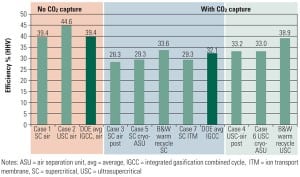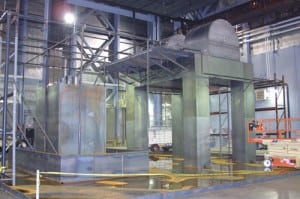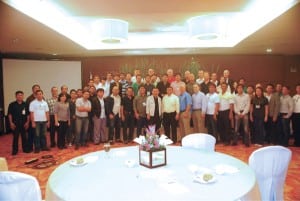Coal
-
Coal
Partnership Develops Innovative CCP Project
In 2009, the North Carolina Asheville Regional Airport Authority (Airport), with partners Progress Energy Carolinas Inc. and Charah Inc., began development of the Westside Development Fill Project (Westside Project), a long-term infrastructure strategy located in the southwest quadrant of the Airport’s property. The project included phased construction of a developable pad for general aviation and commercial use, a new taxiway running parallel to the existing runway, and a major expansion of the existing runway.
-
Coal
Europe: More Coal, Then Less
Europe’s continuing drive toward sustainable energy does not rule out a new generation of coal power plants to replace those scheduled to close by 2015.
-
Coal
India’s Chronic Coal Shortages Threaten Coal Power Ambitions
India has been besieged by a coal shortage of unprecedented severity that has forced privately owned and money-strapped state-owned coal-fired power plants alike to rely on expensive imports from Indonesia and South Africa to replenish woefully inadequate stocks.
-
O&M
Using Explosives for Boiler Deslagging
This unconventional technique for removing slag from solid fuel-fired boilers, used for more than two decades, has exploded in popularity. But the risks are very real, and not all blasters are created equal.
-
Coal
Design Features of Advanced Ultrasupercritical Plants, Part I
Advanced ultrasupercritical (A-USC) is a term used to designate a coal-fired power plant design with the inlet steam temperature to the turbine at 700C to 760C. In Part I of a three-part report, we introduce the A-USC boiler. Future reports will discuss the metallurgical and boiler design challenges.
-
Coal
FirstEnergy, AEP, and GenOn Continue Trimming Coal-Fired Fleet Size
FirstEnergy Corp., AEP, and GenOn have all announced coal-fired plant closures, totaling over 13 GW, caused by the recently finalized Mercury and Air Toxics Standards.
-
Coal
EPA to Keep Thresholds in Step 3 of Tailoring Rule for GHG Permits
A proposed rule issued in late February by the Environmental Protection Agency (EPA) will not change the greenhouse gas (GHG) permitting thresholds for the Prevention of Significant Deterioration (PSD) and Title V Operating Permit programs. However, it includes revisions to the permitting program that would provide some flexibility in how compliance is achieved with GHG emission caps.
-
O&M
NERC: Loss of Reactive Power, Voltage Instability Likely Outcome from Geomagnetic Disturbance Effects
A new report released in early March by the North American Electric Reliability Corp. (NERC) found that loss of reactive power was the most likely outcome from a severe solar storm that was centered over North America. Significant losses of reactive power could lead to voltage instability, and, if not identified and managed appropriately, power system voltage collapse could occur, the report concludes.
-
O&M
Preventing and Mitigating Oil Fires in Power Plants
It has been said that a picture is worth a thousand words. However, photos of the conflagrations that have resulted from ignition of minor lube oil leaks on a typical steam turbine room floor will leave you speechless. Full-scale physical simulations of oil fires by the insurance company FM Global leave no doubt that power plant fire prevention and mitigation is a judicious blend of art and science.
-
O&M
User Group Profile: Philippine Coal Plant Users’ Group
The Philippine Coal Plant Users’ Group (PCPUG), the leading nonprofit organization involved in generating electricity in the Philippines, recently held a conference introducing its mission and vision.






